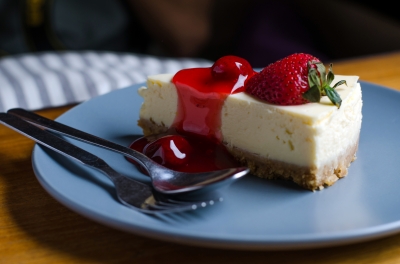Triglycerides: What Fat and Sugar Have in Common
 Holiday splurges can result in more than extra weight to shed in the New Year. Sweet cookies, pies, and candies all rich in fat, along with excess alcohol and calories can lead to a spike in triglyceride levels. This increase in triglycerides may put you at increased risk for heart disease.
Holiday splurges can result in more than extra weight to shed in the New Year. Sweet cookies, pies, and candies all rich in fat, along with excess alcohol and calories can lead to a spike in triglyceride levels. This increase in triglycerides may put you at increased risk for heart disease.
In the Q&A section below, Lorraine Matthews-Antosiewicz, registered dietitian and author of 10 Days to Sugar Free: Sugar Detox Survival Guide, has answered questions regarding the relationship between triglycerides, sugar, and fat.
What are triglycerides?
Triglycerides are a type of fat that come from food, and your body also makes them. They are the most common type of fat found in the body. Triglycerides are continually circulating in the blood ready to be metabolized to provide a source of energy when needed, but their main function is to store energy for later use. When you consume more calories than your body can use, it converts the excess into triglyceride and stores it in fat cells. Fat cells hold the triglyceride molecules until your body needs energy between meals. Hormones signal the fat cells to release the triglycerides for your body to use.
Why do triglycerides matter?



